Table of Contents
Lyon Travel: France’s Culinary Capital and Cultural Gem

Lyon Travel: Lyon, in eastern France at the confluence of the Rhône and Saône rivers, is a city of history, culture, and gastronomy. Known as the food capital of France, Lyon has long maintained its well deserved status: The city has spent centuries experimenting with food, fusing ancient recipes with modern transformation. From its beloved bouchons, small eateries offering rustic Lyon dishes, to its Michelin-starred temples of cuisine, the city offers a repast for every type of eater.
But Lyon is much more than just a place for food lovers. It has a significant artistic and cultural heritage both of which are reflected in the Old Town (Vieux Lyon) and the beautiful 4th, 5th and 6th arrondissements, where you will find festivals such as the fabulous Fête des Lumières. And, as the gateway to some of France’s most famous wine regions, from Beaujolais to Côtes du Rhône, it’s oenophiles’ heaven too.
Lyon Whether exploring its busy markets, tasting amazing food, or taking in architectural wonders, Lyon entrances visitors with its sophistication and its life. As you journey through the streets of Lyon, be ready to step into a world where both the pleasures of the past and the excitement of today are woven through the very fabric of what it means to experience French culture.
The History of Lyon’s Culinary Scene

The culinary reputation of Lyon as the food capital of France,…is based upon centuries of history. The city’s proximity to the confluence of the Rhône and the Saône, coupled with the surrounding landscape filled with fertile fields, perfect vineyards and grazing lands, enabled an easy supply of everything from fresh produce to meats and wines. This plenty is what set the stage for Lyon’s decadent food culture. Canning invented by Nicolas Appert in the 19th century revolutionised the preservation of food and Lyon became the place where culinary innovation is now happening.
The man responsible for making Lyon known worldwide for its modern cuisine is the legendary Paul Bocuse, known as the “Pope of French Cuisine.” Its focus on local produce and evolved French classics propelled Lyon to international stardom. This period saw changes greater even than the modernist; the bouchon, the family-run place with small tables and a hardworking stove, was born, and with it the concept of running dishes from great-grandmother to grandmother to daughter.
Today, there are plenty of Michelin starred restaurants in Lyon and it is known for a mix of traditional Lyonnaise and modern cuisine. Phrases such as Lyon culinary history, Paul Bocuse legacy and French gastronomy reflect the city’s lasting impact on the world of food. It’s worth knowing that history, and it’s a useful perspective to have when spending time in the city — a reminder of the reason Lyon is a draw for food enthusiasts from around the world.
Must-Try Dishes: A Food Lover’s Paradise

The city is the food capital of France and Lyon’s food plants offer an abundance of must-try dishes for every palate. Begin with quenelles, light as a cloud fish or meat dumplings, often served with creamy Nantua sauce. Another classic is coq au vin — chicken that’s been slow-cooked with red wine, mushrooms and onions, which highlights the region’s rustic flavors. For something uniquely Lyonnais, sample andouillette,a savory tripe sausage that sounds adventurous but is a local favorite.
Cheese lovers will enjoy cervelle de canut, an herbed cheese spread of fresh goat cheese, garlic, and herbs — a house favorite at the bouchons. Desserts such as tarte aux pralines roses, a pink praline tart, offer a sweet close to every meal. These offerings are an example of Lyon’s dedication to high-quality, locally produced components. Must-try dishes in Lyon, Lyon food specialties, French cuisine highlights – these are examples of some relevant keywords which enclose their culinary value. Every mouthful is a story, and for lovers of flavor, Lyon is a dream come true.
Exploring Lyon’s Famous Markets

The markets of Lyon are a wonderfully alive tribute to fresh ingredients, local artisans and markets and give visitors an up close and personal image of the culinary soul of Lyon. Named after the legendary chef, the Les Halles de Lyon Paul Bocuse is a mecca for foodies. Stalls here are packed with cheeses, charcuterie, seafood, pastries — all from local producers. It’s a great place to sample Lyonnais delicacies or pick up provisions for a picnic.
For a more conventional open-air experience, try the Marché Bastille, which is held every Sunday along the Quai Saint-Antoine. Here, you’ll find beautiful stalls filled with seasonal fruits, vegetables, flowers and spices, as well as local vendors hawking honey, jams and handcrafts. There is also the Marché Croix-Rousse which, with its emphasis on organic and sustainable products, is an indication that Lyon is increasingly embracing eco and eco-friendly values.
They’re not simply shopping venues but cultural centers, places where locals meet, swap tales and celebrate food. Keywords such as Lyon markets, Les Halles de Lyon, and French food markets are used to stress their importance. Venture into these busy markets to experience a real slice of Lyon’s lively food scene.
The Best Restaurants and Bouchons in Lyon
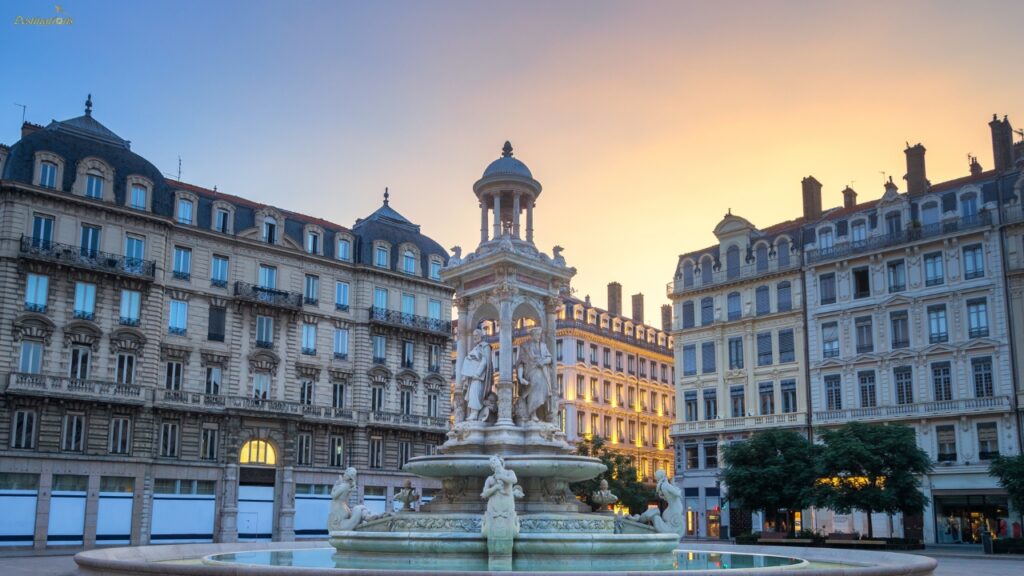
Lyon is home to among the best dining in France, a heady mix of Michelin-starred splendor and the cozy comfort of the city’s traditional bouchons. For a memorable meal, head to Daniel & Denise, the popular bouchon of Chef Joseph Viola, where traditional dishes tablier de sapeur (breaded tripe), pike quenelle are given a contemporary spin. Another star is Le Gourmet de Sèze, which produces fine Lyonnais cuisine in an intimate setting.
Auberge du Pont de Collonges, an for upper-end, founded by Paul Bocuse, is the stuff of legend. It stakes its reputation on perfection, and its three Michelin stars are ample proof: signature dishes such as black truffle soup have diners swooning in rapture. And newer establishments like, high on Fourvière Hill, are both places with panoramic views and dishes that are more than just a pretty picture.
Bouchons, though, still are the soul of Lyon’s dining scene. These unpretentious eateries offer large helpings of good, heartwarming food in the comfort of a cozy family space. They’re searchable by category so that keywords such as best restaurants in Lyon, Lyon bouchons and Michelin-starred dining encompass the scope. Whether one wants luxury or authenticity, the culinary landscape of Lyon offers something for every type of appetite.
Must-Visit Spots by Lyon Travel
Lyon is the city that manages to perfectly combine its glorious past with the modern present and has something to offer to travelers on every corner or turn. From history to the culinary to fine arts, this city has it all. Check out our guide to the must-visit spots that best encapsulate this alluring French city:
1. Vieux Lyon (Old Town)
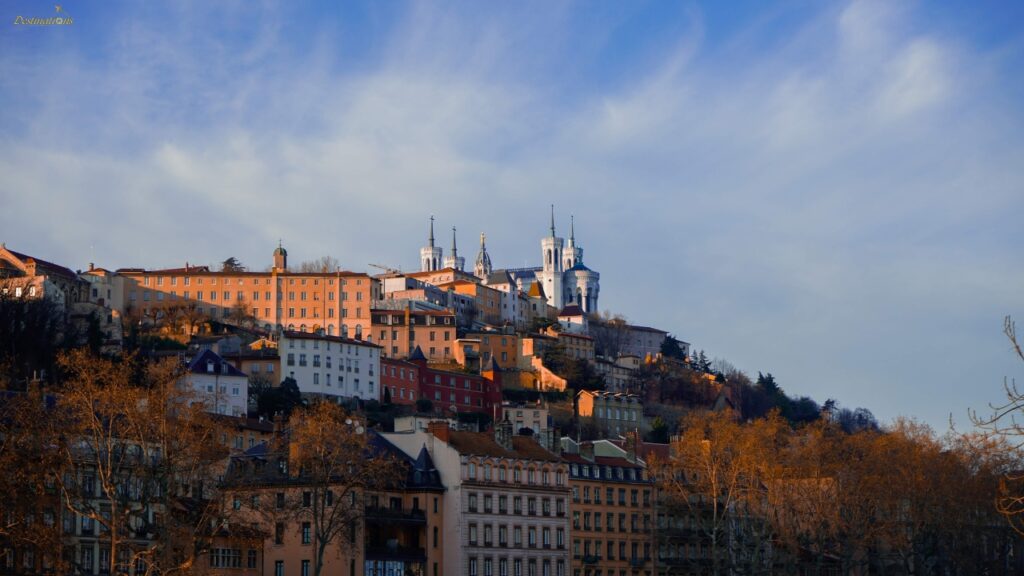
Travel back in time as you amble through Vieux Lyon, a Unesco World Heritage Site and one of Europe’s most well-preserved Renaissance neighborhoods. This lovely locality is well known for its slender cobblestone streets, secret traboules (passageways) and fabulous Gothic and Renaissance architecture. More Notable are the Cathédrale Saint-Jean-Baptiste with its finely decorated stained glass windows and the Maison des Avocats – a fine example of Renaissance architecture.
2. Basilique Notre Dame de Fourvière and Fourvière Hill

The Basilique de Notre-Dame de Fourvière surmounts the Fourvière Hill and is a major landmark of Lyon. This mesmerising 19th-century church is a fusion of Byzantine and Romanesque styles and its observation deck provides sweeping panoramic views of the city. Nearby is the ancient Roman Theatre of Fourvière, a vestige of Lyon’s past as Lugdunum, capital of Roman Gaul. The hill is also home to the Musée Gallo-Romain, where you can peruse some intriguing exhibits relating to Lyon’s Roman past.
3. Parc de la Tête d’Or

Take a breather from city life in Parc de la Tête d’Or, one of France’s largest urban parks. This vast green patch is home toIf you are fond of flowers, well landscaped gardens and a pretty good car and bicycle picnic. Families will enjoy the park’s zoo, botanical gardens and playgrounds, while joggers and bikers can stay active on its meandering trails. It’s a tranquil escape and a go-to spot for locals and tourists.
4. Musée des Confluences
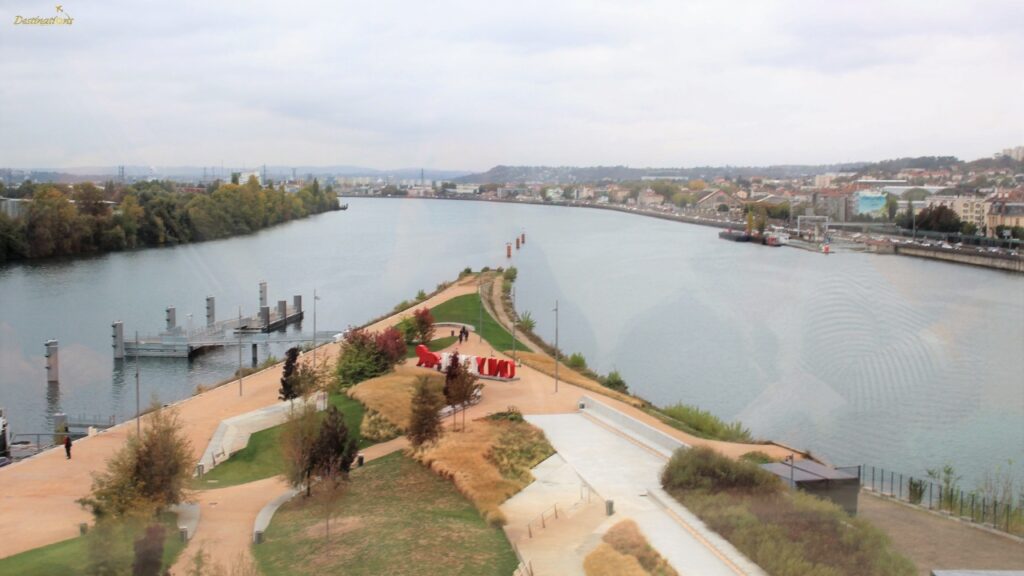
Sitting at the convergence of the Rhône and Saône rivers, the Musee de Confluences is a modern museum that sits in a futuristic, glass-and-steel construction. Its displays delve into the history of life, from human evolution to cultural diversity, so expect a thought provoking experience. The museum sits in a great location for viewpoints for the confluence point, which only makes it all the more interesting.
5. Les Halles de Lyon Paul Bocuse

A mecca for foodies, Les Halles de Lyon Paul Bocuse is a foodie’s mecca, named after the famous chef. This lively market is lined with stalls selling fresh produce, handmade cheese, charcuterie, seafood and pastries. It is the perfect spot to try Lyonnais specialties or gather fixings for a picnic. Don’t pass up the chance to try local specialties like cervelle de canut or praline tarts.
6. Croix-Rousse District
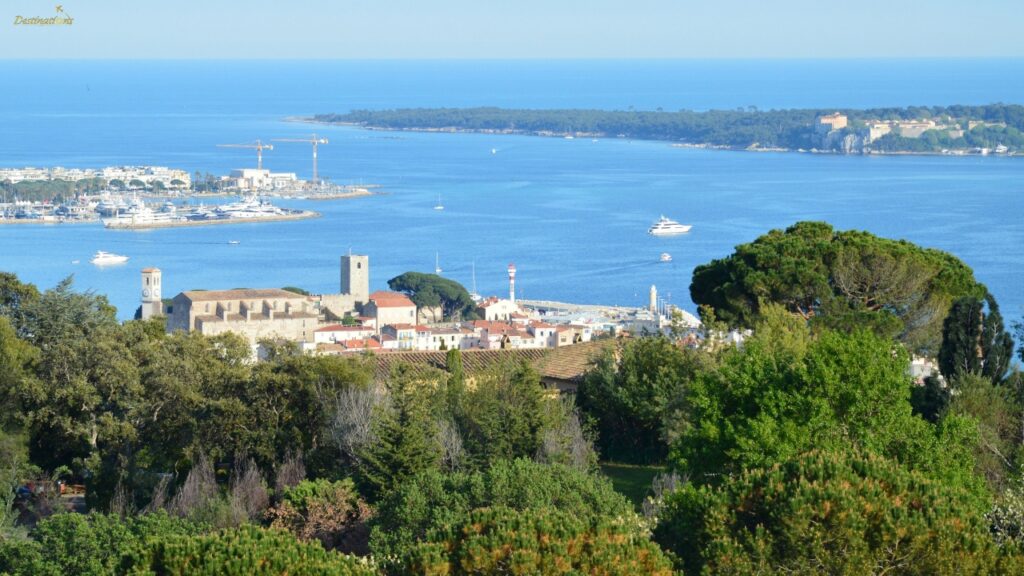
Dubbed “the hill that works,” Croix-Rousse was traditionally inhabited by Lyon’s silk workers, and its lanes are webbed with traboules, narrow passageways through which silk was once transported. Today it is a hip quarter replete with independent boutiques, cafés and street art. Check out the Mur des Canuts, an enormous trompe-l’œil mural of life scenes, or visit the Silk Museum to explore Lyon’s textile history.
7. Place Bellecour

As one of Europe’s biggest open squares, Place Bellecour is a buzzing centre point in Lyon. Bordered by cafes, shops and historic buildings, it’s a great place to relax and people watch. The square is centred on an equestrian statue of King Louis XVI, and is where events, markets and festivals are held, such as the annual Fête des Lumières.
8. Traboules of Lyon
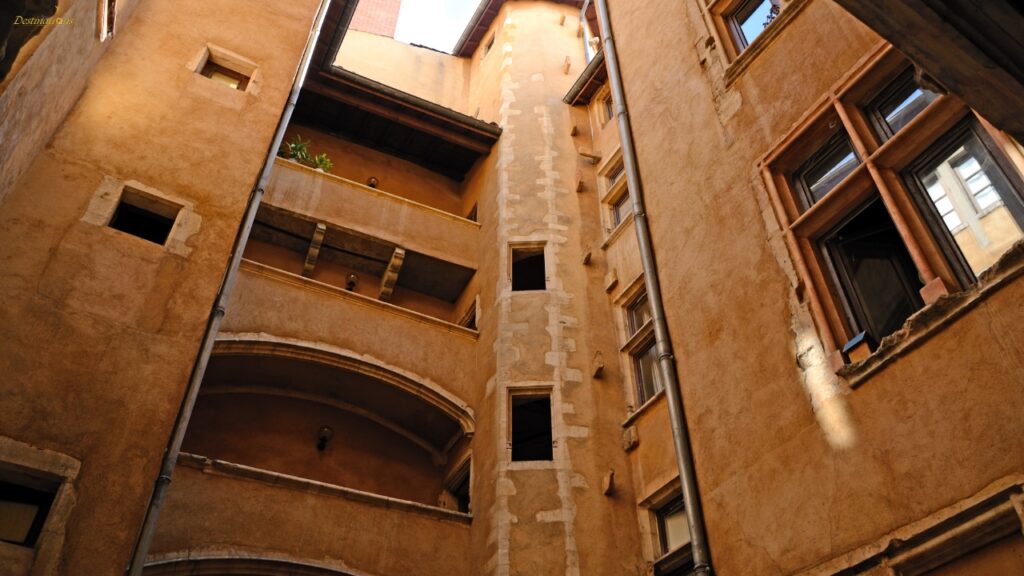
Lyon’s Old Town and Croix-Rousse are riddled with them — traboules, secret passageways that travel between buildings and courtyards. Once used by silk workers to carry their loads and later by the French Resistance during WWII, these narrow passageways offer a distinctive look at the city’s clandestine past. Tours are offered but intrepid tourists can find them on their own.
9. Institut Lumière

Movie lovers will want to catch the Institut Lumière, which pays homage to the Lumière brothers, the inventors of cinema. Located in their family home, the museum features early movie-making equipment, photographs and other memorabilia. You can also see screenings of classic films in the neighboring cinema. It’s a nice little trip into the origins of motion pictures.
10. Presqu’île District

Between the Rhône and Saône rivers lies the commercial and cultural heart of Lyon, the Presqu’île peninsula. The vibrant neighborhood is full of upscale boutiques, theaters and restaurants. Notable landmarks include the Place des Terreaux, the location of the famed Bartholdi Fountain, as well as the Opéra National de Lyon, a magnificent feat in architecture.
Why These Places Matter
All of these have something to offer to uncover a bit more of the face of Lyon as a food heaven, historic importance, artistic mood or green lungs of the grande ville. Search for words like must-see in Lyon, what to see in Lyon, or what to do in Lyon and you will find a marvellous city. Whether you’re walking among ancient Roman ruins, sampling the crème de la crème of world cuisine, or discovering secret traboules, Lyon is a city that offers the best of both worlds: a rich heritage alongside a modern lifestyle.
Culinary Festivals and Events in Lyon
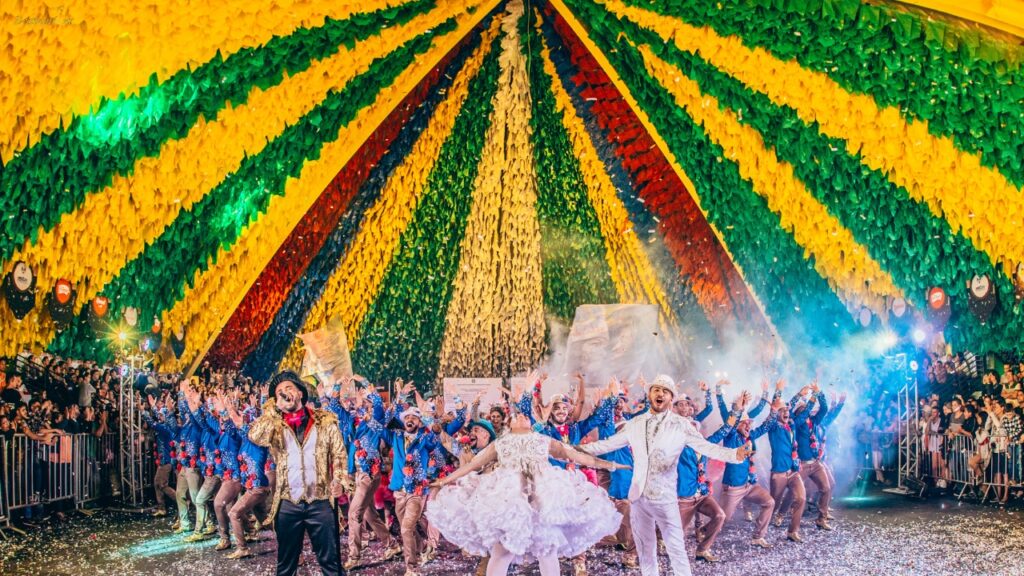
Lyon is the scene of several epicurean festivals, the best-known of which is the Fête des Lumières, which begins every 8 December and lasts for four days, earning Lyon the title of Capital of Lights. The Fête des Lumières is a light festival but also usually features food stalls and pop-up kitchens, so everyone can enjoy the local flavors in a world filled with lights. And then there is the 14-day long biennial Sirha International Hotel Catering Fair, which draws chefs and restaurant lovers from around the world and highlights the latest trends and technologies in the world of culinary art.
One of the highest-profile events is the Bocuse d’Or, a major international cooking competition established by Paul Bocuse. Hosted in Lyon, France, it attracts world-respected chefs who vie for the coveted title and transmogrifies the host city into a stage for gastronomic excellence. Smaller but just as charming, the Marché Gourmand sees local producers and craftsmen showing off their best wares, while the Wine and Cheese Festival showcases the region’s spoils.
These festivals are a vivid recognition of Lyon’s vibrant food culture and sense of community. That’s evident when you see that terms such asculinary festivals in Lyon, Bocuse d’Or, and Lyon food events emphasize its appeal. The fact that one can meet Lyon’s living gastronomic heritage is remarkable and well worth attending such events!
Cooking Classes and Food Tours: Hands-On Experiences

For those that want to learn more about Lyon’s culinary heritage, cooking classes and market tours provide an opportunity to participate in the city’s gastronomy. The many workshops on offer and led by chefs provide pointers on how to make traditional Lyonnais fare such as quenelles, gratin dauphinois and cervelle de canut. A popular choice is Atelier des Chefs, which some great interactive classes for beginners and more experienced cooks.
Food tours, on the other hand, lead you through Lyon’s historic neighborhoods, with stops at bouchons along with markets and the city’s hidden gems. Companies like Lyon Food Tour offer guided walking tours to tasting stops, where you learn about the history of each dish and of the city’s culinary history. You might nibble on charcuterie at a bouchon, sip Beaujolais wine at a cellar, or gloss your fingertips with a freshly baked baguette from a boulangerie.
They are the perfect course for food lovers, part workshop, part masterclass and part inspirational day-school. Keywords such as cooking classes in Lyon, food tours in Lyon, and hands-on culinary experiences emphasize their worth. Drafting dough or drinking wine, these are memories we’ve made for the memories, I always say.
Wine Regions Near Lyon: A Perfect Pairing

Lyon’s location close to some of the best wine regions in France makes it an excellent home base for oenophiles. A short drive to the south is the Beaujolais, the region known for its fruity red wines produced from Gamay grapes. Guests can tour scenic vineyards, take a tasting or learn about the region’s wine-making process. Among the most amusing things the city plays host to is the annual Beaujolais Nouveau Festival, when the first wines of the year are released.
To the north are the regions of Côte-Rôtie and Condrieu, both known for rustic Syrah and silky Viognier, respectively. These lesser-known but well-regarded regions feature intimate tours and tastings, often presented by passionate vintners. Even closer is the Mâconnais with its white Chardonnay-based wines, like Pouilly-Fuissé.
To combine Lyon’s wonderful fare with these local wines, is just a match made in heaven. Words like wine regions near Lyon, Beaujolais wines and French wine tourism all describe the appeal of these places. Visiting these vineyards will enrich any foodie adventure, knowing that you are savouring what grows in this remarkable region – as well as that which grows geographically from it.
Tips for Navigating Lyon’s Food Culture

To negotiate Lyon’s food culture, some preparation and a willingness to try new things are needed in order to really appreciate the city’s culinary treasures. First, get to know the tipping in and out – service tends to be included but a small tip (5-10%) is usually added to the bill for a top-notch service. It’s mandatory to book for popular bouchons and Michelin-starred restaurants, particularly at peak times and around festivals.
Also, don’t be shy about asking servers for suggestions when eating out — they do love offering tried-and-true experiences to their clients. Don’t be afraid to take a risk—dishes like andouillette or tête de veau can seem unappetizing but are classic elements of Lyonnais food. If you’re unsure what to order, go for the fixed-price menu (menu du jour) which presents a great deal and, more importantly, gives you today’s best goods.
Finally, mind local etiquette, saying “Bonjour” to staff when you enter, steering clear during rush hour if you’re not prepared for packed markets or cafés. Terms such as Lyon eating tips, Lyon food etiquette and how to eat around French food sum up these tips. Follow these tips, and you’ll move like a local through Lyon’s food scene for an amazing and delicious visit.
How to Get to Lyon: A Guide to Traveling to France’s Food Capital

It has beautiful and convenient transport links making it one of the more accessible cities of France. Regardless of whether you’re traveling by air, by train, by car, or by bus, here’s an overview on how to get to this lively city:
1. By Air: You can fly to Lyon-Saint Exupéry Airport
Lyon–Saint Exupéry Airport (LYS) is the main international airport in Lyon, located 20km east of Lyon city centre. It links Lyon to other major European cities, including Paris, London, Amsterdam, Rome and Barcelona, and takes passengers to long-haul destinations via hubs such as Charles de Gaulle in Paris.
Airport to City Centre:
Rhônexpress Train: Travel time of half an hour to Part-Dieu Train Station or Gare de Lyon Perrache: quickest and easiest way. Trains leave every 15 minutes and will go around €15–€20 one way.
Taxis and Rideshares: Taxis can be found outside of the terminal and have fares typically between €40–€60 to the city center. Uber also works in Lyon.
Shuttles: You could also share a shuttle to central Lyon with companies like Satobus, bringing down the cost.
2. By Train: High Speed Train Links
Lyon is served by two primary train stations: Gare de Lyon Part-Dieu and Gare de Lyon Perrache, both terminating points for high speed TGV (Train à Grande Vitesse) services. A train journey is one of the quickest and easiest ways to get to Lyon, in particular from other towns of France or from its neighbouring countries.
Direct from Paris: It takes only 2 hours from Paris Gare de Lyon to Lyon Part-Dieu, and is very convenient for both business and leisure travelers.
From Other Cities: Lyon has good train links to other cities, such as Marseille (1.5 hours), Geneva (2 hours), Nice (4 hours), and Brussels (4 hours). Cross-border services are provided to Milan, Turin and Frankfurt by rail.
Local Trains (TER): Regional trains join Lyon to the surrounding cities and villages, in the Auvergne-Rhône-Alpes region.
3. By Car: Driving to Lyon
For more flexibility and freedom of movement renting a car is the way to go. France’s excellent motorway network also makes the city very easy to reach.
Key Routes:
From Paris: The most scenic route is the A6 autoroute, and it’s around 4.5–5 hours, depending on traffic.
Marseille: Take the A7 autoroute, about 2.5–3 hours.
From Geneva: The A42 puts Switzerland within easy reach of Lyon, about 2 hours away.
Parking in Lyon: There are parking lots and underground garages in Lyon where you can park your car for a fee, especially near major attractions and train stations. You could brace yourself for steeper parking prices in the city.
4. Take the Bus: It’s Cheap and Convenient
Buses are a cheap way to travel to Lyon if you’re on a budget. Bus companies such FlixBus and Ouibus run regular services from a number of European cities.
Popular Routes:
Paris to Lyon: Between 5 and 6 hours, and from €10–€20.
Marseille to Lyon: 3–4 hours.
Geneva to Lyon: Approximately 2.5–3 hours.
Bus Stations: Most buses arrive at Gare Routière de Perrache or Gare Routière de Lyon Saint-Exupéry.
5. By Bike – An Environmental Option
For the eco-conscious traveler, or just those craving adventure, cycling to and from Lyon is an option, thanks to high-quality and well-signposted bike lanes and routes — browse the Via Rhôna if that sounds interesting to you. This picturesque trail along the Rhône River links Lyon with the cities of Geneva and Avignon. While this is certainly not the fastest way to travel, it’s ideal for nature lovers and cyclists wanting to take in the beauty of the region.
6. How To Get Around Lyon Once You’re There
Once you arrive in Lyon, you’ll find it’s a cinch to get around given its well-run public transportation system, managed by TCL (Transports en Commun Lyonnais).
Metro: Lyon boasts four metro lines which serve most of the city and reach important areas, such as Vieux Lyon, Part-Dieu or Croix-Rousse.
Trams and Buses : These networks are the natural extension of the subway, in the suburbs and towns close by.
Bicycles: Lyon has a bike-sharing program called Vélo’v, which provides cheap rentals for short rides.
Walking Many neighborhoods, including Vieux Lyon and Croix-Rousse, are easily navigable on foot.
Why Choose Lyon?

Whether by boat, plane, car or bus, you will find all possible means of travel to reach Lyon and its surrounding cities, given that the city is centrally located in Europe and has a well developed travel infrastructure. Keywords such as where to fly into Lyon, how to get to Lyon, and getting around Lyon, all underscore how open planning your trip really is! Whether you’re arriving by air at its modern airport, whizzing in on a fancy high-speed train or hitting the road for a scenic drive, Lyon wraps you up in a warm embrace — and scores upon scores of culinary delights!
Conclusion: Why Lyon Should Be Your Next Culinary Destination
Lyon is one such place and a must-visit for anyone who adores food with a mix of history and tradition thrown together with innovation. From its centuries-old bouchons to its avant-garde Michelin-starred destinations, the city has something for every taste and desire. Its highly acclaimed markets, rich and vivid festivals and close proximity to wine regions just adds to the appeal where there’s no shortage of opportunities to explore and indulge.
In addition to its culinary chops, Lyon is a lovely and welcoming city with a rich cultural history, and a pleasure to visit. Whether taking pleasure in a plate of quenelles (that classic French comfort food not often seen even in the comfort food capital that is Quebec), learning to cook in a hands-on class or tasting Beaujolais wines, every moment here is a stride further into the pantheon of French gastronomy. Key words like why visit Lyon, France’s culinary capital, and travel guide to Lyon embody the city’s appeal. Lyon is not only just a place to eat but is a way to live, breathe and honor food, and it’s a never-to-be-forgotten destination for epicures all over the globe.
please follow destinations.today for more destinations information.


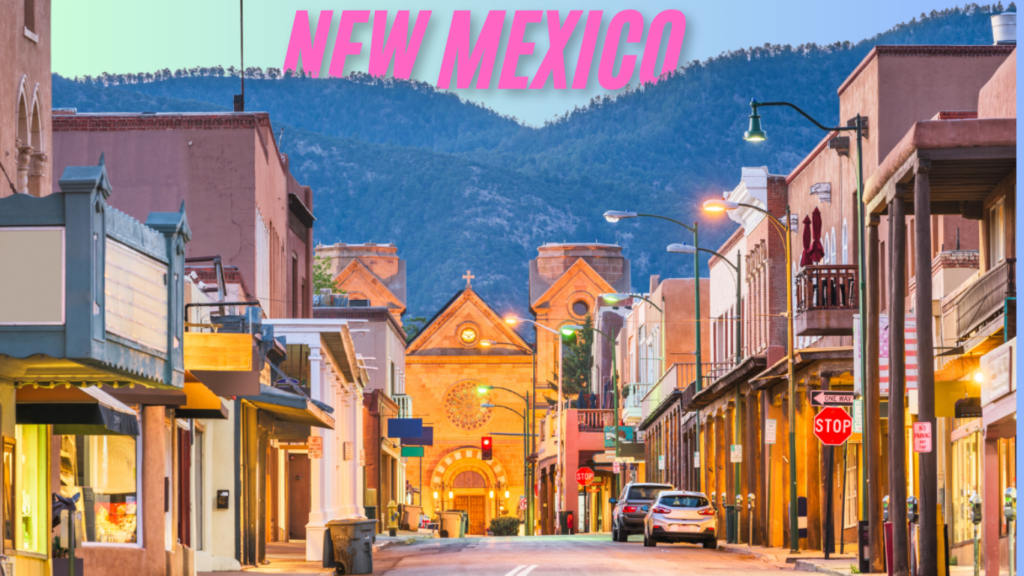

Новые тренды в мире дизайнерской мебели.
Дизайнерская мебель премиум-класса [url=https://www.byfurniture.by/]https://www.byfurniture.by/[/url] .